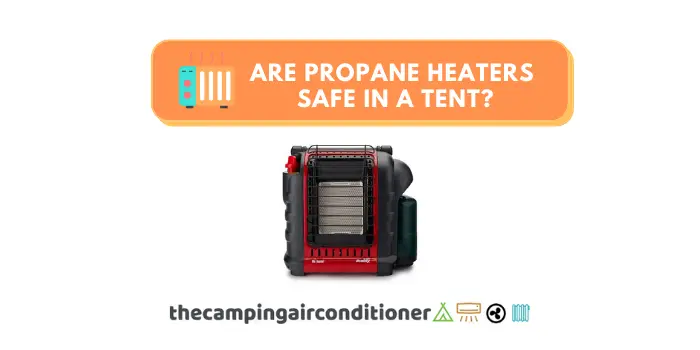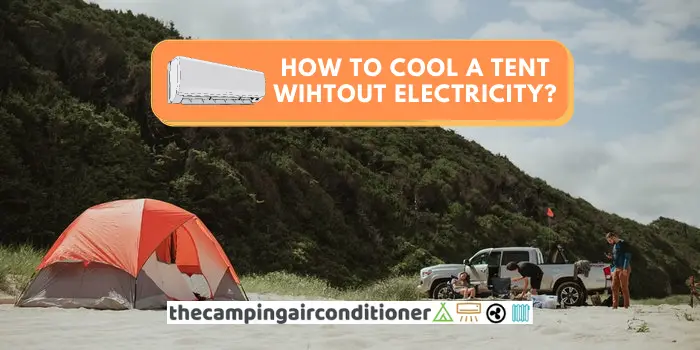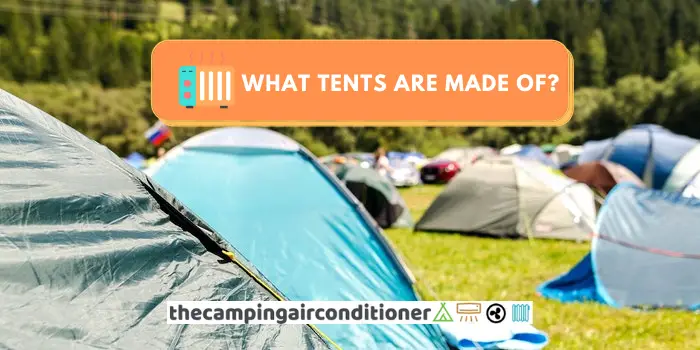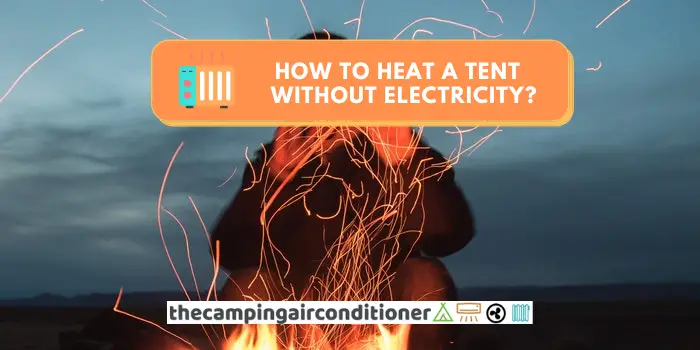Going outdoors and exploring nature is an excellent program to stimulate babies’ sensory systems. An adequate stimulation will help them develop cognitive functions and allow for healthy growth.
However, if you are considering going camping with a baby in cold weather, there are some tips and advice that you should consider before leaving for your next trip.
Let’s go through them below.
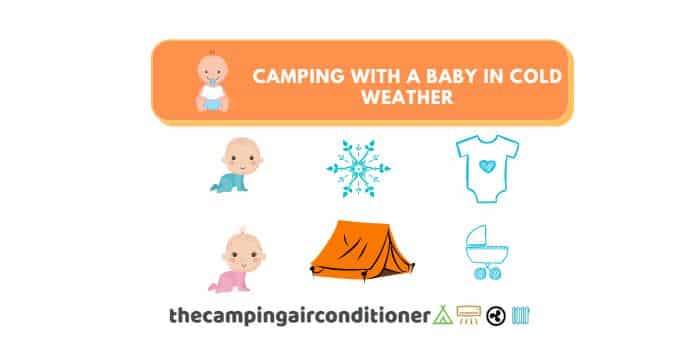
At what age can a baby go camping?
Babies start to auto-regulate their temperature when they are about 11 weeks old. However, their internal regulation mechanisms keep developing until they are two years old.
Whilst there is no magical age that will allow taking your newborn camping, there is a common sense that you should wait until they are 6 months old.
You should also consider the infant’s sleeping patterns and the forecast temperatures for your chosen campsite.
We recommend speaking to your pediatrician and following his recommendations.
How to go camping with a baby in cold weather
We developed a couple of tips to help you go camping with your toddler in winter and detailed them below.
#1 - How cold is too cold to take your baby camping? Check the weather forecast for your campsite!
When planning your trip, check the weather forecast for your campsite. Temperatures below 20 Fahrenheit are non-go, and you should not consider taking your baby on the trip.
Babies can support temperatures between 20 degrees and 32 degrees Fahrenheit for short periods, provided they are adequately protected.
When checking the temperatures, also remember to consider winds. The wind chill factor can drop temperature feelings and significantly impact weather resistance. With this in mind, preferably pitch your tent in areas protected from wind (i.e. next to trees).
#2 - Buy specific winter camping camping gear
Picking suitable camping gear might help you with your newborn’s winter adventure. Ensure that you bring a 4-season tent (specially designed for cold weather) with plenty of space to accommodate your baby and accessories.
If you are already have a tent, you can learn how to insulate it for winter camping here.
Editor’s note: Canvas tents tend to offer optimal insulation features and have improved breathability, which decrease tent condensation risks.
#3 - Choose the adequate baby clothing
Bring a wide variety of warm clothes for your baby. Temperatures might vary during the day. Hence, it might be good to bring different layers, such as shirts, coats, vests, snowsuits, fleece pants, blankets, etc.
Always watch for signs that your baby is too cold. According to Healthline, symptoms of hypothermia include:
- lack of appetite
- sluggishness
- weak cry
- pale and cold skin
- trouble breathing
Conversely, pay attention to removing layers when you note that your baby is starting to feel hot. Overheating symptoms include red skin, increased heartbeat, lethargy, dizziness and confusion.
#4 - Pay attention to hands, feet, and head.
These are the areas where babies lose heat the most. Consider bringing gloves, hats and special socks to avoid direct exposure to the environment.
#5 - Monitor baby's temperature
Consider buying an infrared thermometer to monitor your little one temperature constantly. Overall, the best temperature for babies ranges from 68 to 72 degrees Fahrenheit.
If temperatures go above 95 F, it is time to remove clothes layers and refresh the newborn’s body. On the other hand, wrap them up with warm clothing when temperatures decrease below 40F.
#6 - Consider a baby sleeping bag!
A baby sleeping bag will give your little one comfort and a cozy environment. Look for options that provide breathability and space to allow small moves for the newborn.
Alternatives with zippers are excellent since you can easily handle them and remove your kid if you note he or she is getting too hot.
#7 - Watch your baby's skin
The freezing weather might affect your baby’s skin. Newborns are especially sensitive to weather conditions (both cold and hot), which can lead to itchiness, dry skin, and constant irritation.
Keep your baby well hydrated, and bring skin moistures creams to mitigate any potential risks. Also, constantly check your baby’s lips – if you note small cracks on their mouth, it might signal a lack of water intake.
#8- Cold weather traction boots
If your baby is already walking, bring cold weather boots that might help them walk around and have good traction. Traction boots are specially designed to allow maximum grip and ensure safety when walking in snow or wet conditions (avoid slips).
Attention: traction boots have rugged soles, and make sure you pick options with good breathability for your little one, such as Northside Baby Rampart MID Hiking Boot.
#9 - Bring a portable heater
Portable heaters are an excellent alternative to help you tackle cold weather with your baby. Among various options, you can choose from – read more about them here.
Each option comes with advantages and disadvantages. Our preferred option is electric heaters – they are the safest since they do not release carbon monoxide. This means that you and your baby will not be exposed to CO poisoning risks.
However, we acknowledge that not all campsites offer electrical hookups.
A safe alternative is a propane heater, but you should ensure plenty of ventilation in your tent to avoid increase of CO concentration levels(read more about how to use a tent heater safely).
Whatever option you decide to go ahead with, you should never leave your heating device unattended.
#10 - Be ready for unexpected events.
Be prepared for emergencies – bring extra food, clothes, diapers, lights, and even a solar generator are clever measures if your baby needs to use any special equipment.
Ensure to introduce yourself to other campers and familiarise your little one with the environment. The more used they are, the less stressful a camping trip might be.
Bring their preferred toys and avoid direct sunlight exposure, even in winter days.
Conclusion
A camping trip is an excellent alternative to turn off your mind and deeply connect with your little one.
If you plan a winter trip, ensure you follow all the tips above to have a safe and trouble-trip time with your baby.
We hope this article was helpful!







